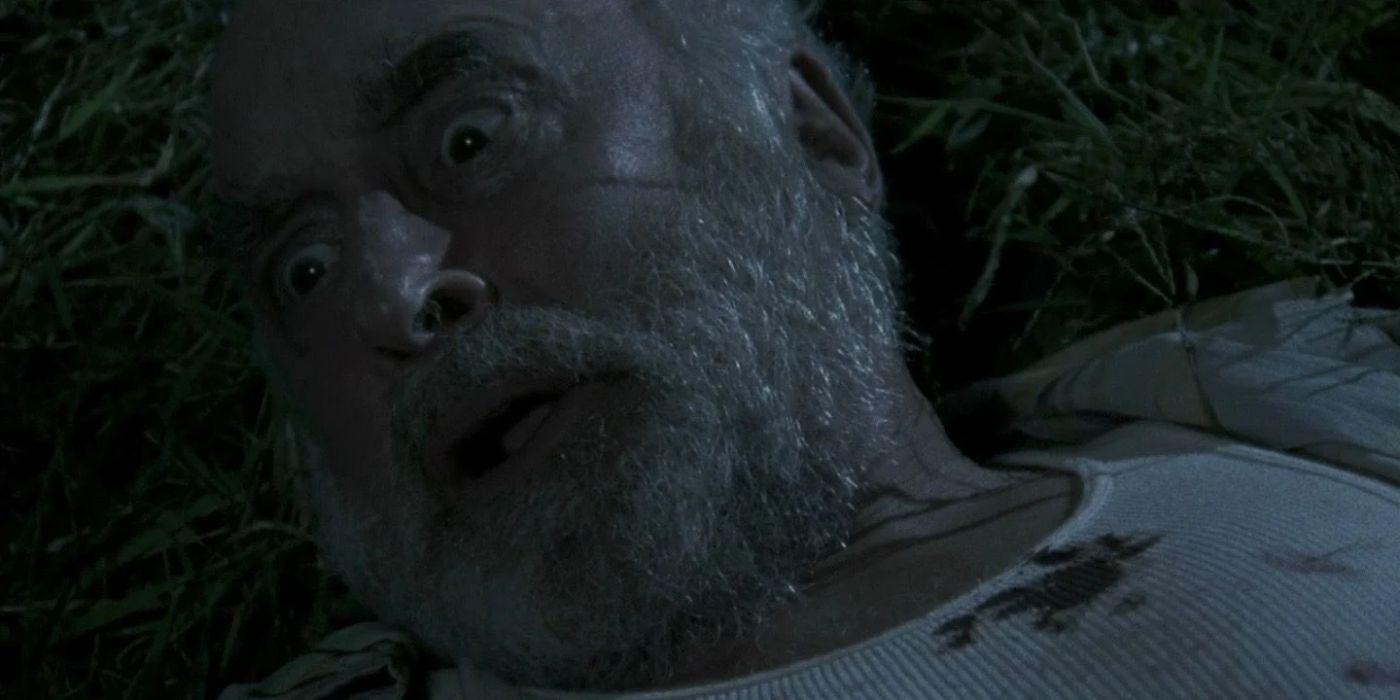Have you ever stumbled upon a question that just stops you in your tracks, something so out of the ordinary it makes you wonder what on earth could have happened? So, that's how many folks feel when they first hear about the query, "How did Dale teleport to his death?" It's a phrase that sparks immediate curiosity, making you picture something straight out of a science fiction story, yet it points to a very real human desire to make sense of the inexplicable. This particular question, with its strange mix of the fantastic and the grim, pulls us into a discussion about how we perceive events that defy easy explanation, and how stories, you know, sometimes grow in unexpected ways.
When we encounter something like "teleporting to death," it naturally makes us pause. We tend to think about the limits of what's possible, and very, very often, our minds try to fit unusual events into familiar boxes. But what if the event itself doesn't fit any box we know? This isn't a widely documented case in the news or history books, which actually adds to its mysterious appeal, leading us to consider the nature of perception and the stories we tell ourselves and others when faced with something truly baffling. It's almost as if the question itself is more about the journey of trying to understand, rather than finding a simple answer.
This article aims to unpack the intriguing question of "How did Dale teleport to his death?" We won't be finding a literal answer to a literal teleportation, because, quite honestly, there's no known scientific basis for human teleportation, especially not in a way that leads to a sudden end. Instead, we'll look at the kinds of situations that might give rise to such a peculiar question. We'll explore how our minds process the unknown, the ways unusual events get described, and how the very idea of something so sudden and strange can captivate our thoughts. It's about looking at the edges of what we know, and the human desire to put pieces together, even when the picture seems incomplete.
Table of Contents
- Unraveling the Mystery of "Dale"
- The Concept of Teleportation in Our Minds
- When Reality Shifts: How We Interpret the Unexplained
- The Power of Narrative and Misinterpretation
- Exploring the Psychological Impact of Unexplained Events
- Critical Thinking and the Unknown
- Frequently Asked Questions About Unexplained Events
Unraveling the Mystery of "Dale"
When a question like "How did Dale teleport to his death?" pops up, the first thing many of us wonder is, well, who is Dale? And what exactly happened? It's important to be clear from the start: there isn't a widely recognized or documented public case of a person named Dale who literally teleported to their death. This query doesn't appear in historical records of strange occurrences or in scientific literature as a factual event. So, in some respects, the mystery isn't about a literal event, but rather about the very nature of the question itself, and why it captures our imagination. It's a bit like a puzzle with missing pieces, where the act of trying to solve it becomes the main point.
This means we're likely dealing with a phrase that might originate from a fictional story, a misunderstanding, a metaphorical expression, or perhaps even a very isolated, private event that has been interpreted in an unusual way. Without more context about "Dale" or the supposed incident, we can't point to a specific person or happening. So, rather than looking for a factual account of teleportation, we're prompted to think about how such a concept could even come into being. It makes us consider the boundaries of what we believe is possible, and how stories, you know, sometimes take on a life of their own, especially when they touch on the unexplained.
The absence of concrete details about "Dale" actually opens up a broader conversation. It invites us to consider the human tendency to try and explain the inexplicable, to put a label on things that defy our everyday understanding. This isn't about finding a specific "who" or "when," but more about the "why" behind such an intriguing question. It's a fascinating thought experiment, really, about how we process information that seems to break all the rules we know. We are, after all, creatures who seek patterns and meaning, and when those are absent, we sometimes create narratives to fill the void, or so it's often said.
The Concept of Teleportation in Our Minds
The very word "teleportation" conjures images of instant travel, of disappearing from one spot and reappearing in another, almost like magic. In science fiction, it's a thrilling concept, allowing characters to escape danger or explore distant worlds in the blink of an eye. Think about those classic shows or books where people just, you know, vanish and then pop up somewhere else. This idea has captivated human imagination for a very, very long time, offering a way to bypass the usual limitations of space and time. It speaks to a deep-seated wish for instant gratification and freedom from the mundane aspects of travel.
However, in our real world, the concept of human teleportation, as depicted in fiction, remains purely theoretical and far beyond our current scientific capabilities. While scientists explore quantum teleportation, that's a vastly different phenomenon involving the transfer of quantum states, not physical objects or people. It's not about moving a person from one place to another; it's a subtle and complex process at the subatomic level. So, when we hear "teleportation," it's important to differentiate between the fantastical notion and what science actually explores. It's a bit like comparing a dream to actual waking life, you know?
So, if literal human teleportation isn't real, then how could someone "teleport to their death"? This leads us to think about what kind of event might be *described* as teleportation. Could it be a sudden, unexplained disappearance? A body found in an impossible location? A rapid, disorienting sequence of events that felt like an instant shift? Perhaps the term "teleport" is being used metaphorically, or as a way to express extreme shock and disbelief at how quickly and inexplicably something happened. It really makes you think about how words shape our understanding, and how a strong word can convey a profound sense of the uncanny. The phrase itself is very, very vivid, isn't it?
When Reality Shifts: How We Interpret the Unexplained
When something truly baffling happens, something that doesn't fit into our usual understanding of how the world works, our minds naturally try to make sense of it. This is where the line between what's real and what's perceived can become a little blurry. Think about how eyewitness accounts of accidents or strange phenomena often differ wildly. Our brains are constantly trying to construct a coherent narrative from the information they receive, and sometimes, when pieces are missing or contradictory, they fill in the gaps in unexpected ways. It's almost as if our internal storyteller just can't stand an incomplete plot, you know?
An event described as "teleporting to death" is a prime example of something that defies easy explanation. It suggests a sudden, perhaps violent, and utterly bewildering end that occurred without any logical progression. When faced with such a profound lack of understanding, people might resort to extraordinary explanations because ordinary ones simply don't fit. It's a way of grappling with the terrifying randomness or the sheer impossibility of what seems to have taken place. The human mind, you see, really struggles with true randomness; it likes to find patterns, even when there aren't any, or so it seems.
This tendency to seek meaning, even in chaos, can lead to fascinating interpretations. What might appear as "teleportation" could, in reality, be a combination of factors: a rapid, unseen sequence of events, a misinterpretation of distance or time, or even a sudden, unexpected medical emergency that led to an immediate collapse in an unusual spot. The human brain is a very, very powerful interpreter, and its interpretations are shaped by everything we know, or think we know. So, when something truly defies that knowledge, the explanations can get quite imaginative, to say the least.
Understanding Perception and Reality
Our individual reality is built on our perceptions, the way our senses gather information and our brains process it. But perception isn't always a perfect mirror of what's "out there." It's filtered through our experiences, our beliefs, and even our current emotional state. For instance, if you're expecting something strange, you might be more likely to interpret ambiguous information as strange. This means that two people can witness the exact same event and come away with very different accounts, or so it's often observed.
Think about optical illusions, or how sounds can be misinterpreted in a dark, quiet house. These are simple examples of how our brains actively construct our reality, rather than just passively receiving it. When an event is truly shocking or traumatic, these perceptual filters can become even more pronounced, leading to fragmented memories or interpretations that seem unbelievable to others. It's a very, very complex process, this business of seeing and understanding, and it's far from straightforward, you know?
So, when we consider a phrase like "teleported to death," it makes us wonder about the circumstances surrounding the event. Was there a witness whose perception was altered by shock or fear? Was there a rapid sequence of events that made it *seem* like an instant displacement? Our minds, quite frankly, are always trying to connect the dots, and sometimes, the connections they make are rather unique. This is why exploring the nuances of human perception is so important when we look at unexplained phenomena, or so it seems.
The Role of Dissociative Identity Disorder (DID) in Perception
While completely unrelated to literal teleportation, understanding conditions that affect perception and identity can offer a tiny glimpse into how deeply varied human experience can be. For example, dissociative identity disorder (DID) is a mental health condition where a person has two or more separate personalities that control their behavior at different times. It's a rare condition in which two or more distinct identities, or personality states, are present in—and alternately take control of—an individual. This condition is often misunderstood and portrayed incorrectly in popular media, which is a bit of a shame, really.
The most recognizable symptom of dissociative identity disorder (DID) is a person’s identity being involuntarily split between at least two distinct identities or personality states. Individuals with DID will exhibit two or more of these identities. This condition is characterized by identity and reality disruption. Learning about the symptoms of DID can help us explore the complexities of how a person's identity and their experience of reality can be profoundly affected. It's about how this condition affects mental health and daily life, and it's a very, very serious matter for those who live with it. You can learn more about dissociative identity disorder on our site, as a matter of fact.
The relevance here isn't that DID causes teleportation; it absolutely does not. Instead, it serves as an example of how a person's internal experience of reality and identity can be so profoundly different from what others might perceive. If someone experiences significant disorientation or gaps in memory, their personal narrative of events might become fragmented or seem inexplicable, even to themselves. It's a way of illustrating that the human mind can process and interpret the world in ways that are, you know, sometimes very far from what we consider typical. This can lead to a sense of unreality or a feeling that things are just not as they should be, which is a rather unsettling experience for anyone.
The Power of Narrative and Misinterpretation
Humans are natural storytellers. We love a good narrative, and we often try to create one even when the facts are scarce or confusing. This tendency is a powerful force, shaping how we remember events, how we communicate them to others, and how they evolve over time. A phrase like "How did Dale teleport to his death?" is a perfect example of a narrative that has likely been shaped by initial shock, subsequent retelling, and perhaps a touch of creative interpretation. It's almost like a game of telephone, where the message changes just a little bit with each person who passes it along, you know?
Misinterpretation plays a big role here. What might have been a sudden, tragic accident could be described in a way that emphasizes its baffling nature. For instance, if someone fell from a height and landed in an unexpected spot due to an unusual trajectory, or if they vanished from sight very quickly before being found, the description might become exaggerated over time. The "teleportation" part could be a way of conveying the sheer speed and unexpectedness of the event, rather than a literal claim. People often use strong language to express strong feelings, and this could be a case in point, you see.
Consider how urban legends or local folk tales often begin. They frequently stem from a real event that was unusual or frightening, but as the story is passed down, details get added, removed, or twisted to make the narrative more compelling or to explain the unexplainable. The idea of "Dale teleporting to his death" could be a modern-day equivalent, a story that has grown from a seed of truth into something far more fantastical. It really shows how our collective imagination can shape our understanding of the past, and how a vivid phrase can capture attention and spark conversation, even if the underlying facts are quite different. This phenomenon, you know, is quite fascinating to observe.



Detail Author:
- Name : Dr. Cordia Nolan
- Username : laney13
- Email : astreich@yahoo.com
- Birthdate : 1996-02-13
- Address : 38958 Swift Plaza Apt. 496 Port Patrickside, KS 10627
- Phone : (520) 942-4738
- Company : Carter LLC
- Job : Administrative Law Judge
- Bio : Quisquam illo nobis at unde. Error voluptates molestiae expedita fugit adipisci aut. Voluptate eum ipsum nam quo hic.
Socials
tiktok:
- url : https://tiktok.com/@carter1982
- username : carter1982
- bio : Sed fuga in recusandae voluptatem.
- followers : 6369
- following : 830
linkedin:
- url : https://linkedin.com/in/lance_carter
- username : lance_carter
- bio : Itaque eveniet laudantium illum voluptatem.
- followers : 3351
- following : 468
facebook:
- url : https://facebook.com/lance5955
- username : lance5955
- bio : Suscipit recusandae labore quo cumque voluptatum possimus.
- followers : 4055
- following : 2953